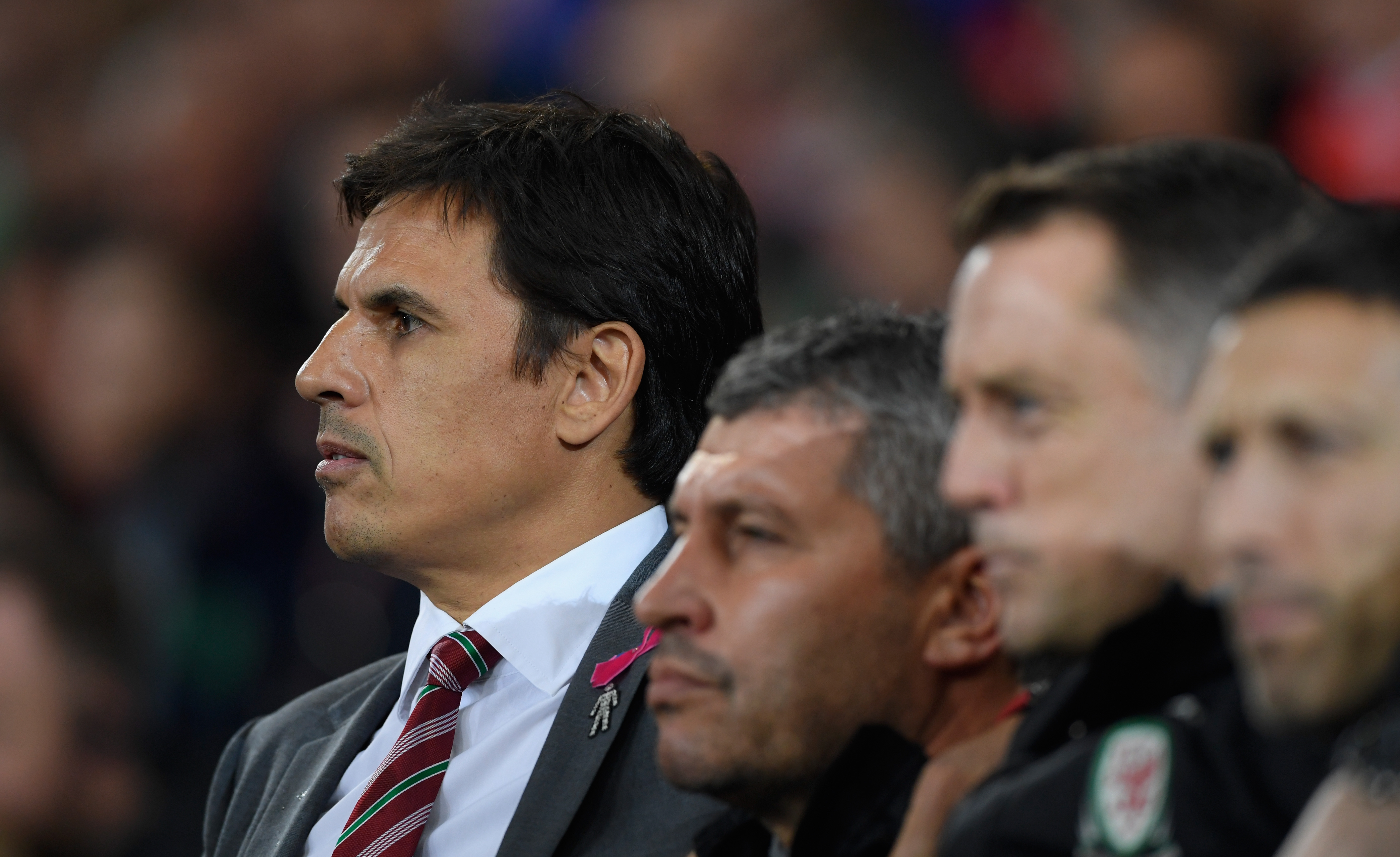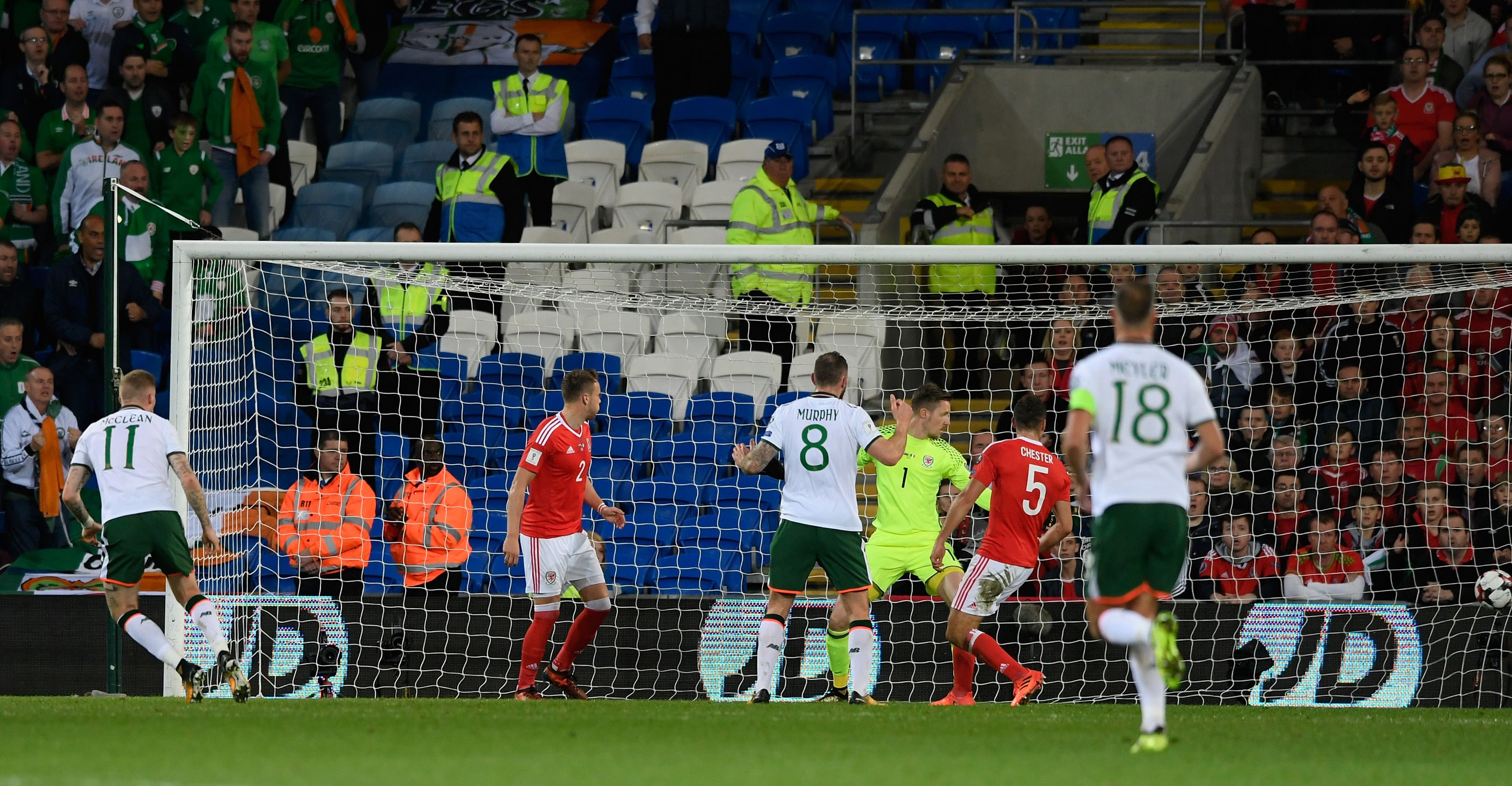

Share
10th October 2017
07:45am BST

The men resting on the railings were a few of Ireland’s players, spent and stunned, after an astonishing night when this team hadn’t so much demonstrated they are more than the sum of their parts, but that the way we calculate this collection of parts may need to be reexamined.
When O’Neill talked to the media afterwards and looked forward to next month’s play-off, he noted the daunting list of potential opponents and made a statement which could sum up Ireland under this manager.
“Do we fear teams in it? Absolutely. Every single one of them. Then we go out and beat them.”

Ireland have utilised their fear. It keeps them honest, even if it also restricts them in much of what we think football teams should be doing, simple things like passing the ball and holding on to it.
But if ever there was a night when Martin O’Neill’s Ireland deserved to be reappraised it was in Cardiff on Monday night. Ireland might have benefited from the mental collapse of the Wales side, but they contributed to that collapse as well.
Chris Coleman was asked after the game if Joe Allen had been targeted by Ireland and he responded that “you would have to ask them”. Those who had predicted a physical game hadn’t been disappointed, Coleman said, and that was just the way it goes.
Ireland had been very Ireland for the first third of the match, but O’Neill would probably argue that they were very Ireland for the 96 minutes of the game and he might have a point.
For the first half an hour, Allen dictated the pace of the game until he found himself sandwiched between Meyler and McClean and everything changed. Meyler turned to the referee with arms outstretched, his palms facing upwards in the internationally recognised gesture for “I did nothing” but Allen’s game was over.
Whatever happened, Allen was soon being led along the touchline, suffering from a suspected concussion and ruled out either by accident or design of a game which, without him, could now revert to first principles.
The game became a battle, something to fear and Ireland had the men for that struggle. Shane Duffy and Ciaran Clark dealt with everything Wales threw at them, even if Coleman felt Wales shouldn’t have been throwing the things they were throwing at Ireland.

The second ball is not Wales's game, Coleman said afterwards. Well, with Allen gone, this was now the only game in town and Ireland weren’t going to let Wales play something else.
McClean’s beautiful goal came in the second half and Wales seemed to be broken by it.
Afterwards, Coleman was gracious and engaging, wishing Ireland well and praising the gameplan of O’Neill and expressing the hope that Ireland make it to the World Cup.
That will be tough and Ireland will face opponents over two legs who will exploit their vulnerabilities, but they demonstrated again on Monday night that some of the things generally agreed to be their weaknesses can be used as a way of unifying the players around a cause.
“Every single time they got men into the penalty area, we had men there,” O’Neill said afterwards with a mixture of wonder and pride that these things which are so often discounted when analysing his team turned out to be the most important qualities of all.
“There are no individuals in this team,” Daryl Murphy said later, echoing that point of view, emphasising that these are eleven players who cover for each other, who run to where a team-mate should be if that team-mate isn’t there and think nothing of it.
Others think something of it though which makes it noteworthy and it is noteworthy because with this approach, Ireland keep winning matches - Germany, Italy, Austria, Wales - when most people expect them to lose.

On those occasions, when it works, they soak up the pressure, soak up the fear and take it from there. Ireland’s belief that they can prosper against any side is their greatest asset under O’Neill, even if their self-belief sometimes manifests itself in performances of limited ambition.
But they may be working towards a greater goal. There are few sides who can deal with the attrition that Ireland promise will be constant for 90 minutes. If they opened up the game to men like Joe Allen, there would be no fear and consequently no attrition. When sides huff and puff, as Coleman described Wales's performance, Ireland know they have Shane Duffy to head everything away, Meyler - who misses the first leg of the play-off thanks to a yellow card picked up when he took Wayne Hennessy down in the final minutes - to hunt the ball down and McClean to do everything in between.
It’s no surprise that McClean has become the player who defines this side, even if Wes Hoolahan is still the player most pine for when creativity is needed. McClean does something else. He plays without fear of his limitations and, as O’Neill would appreciate, he plays as if all the odds can be overcome.
Explore more on these topics: